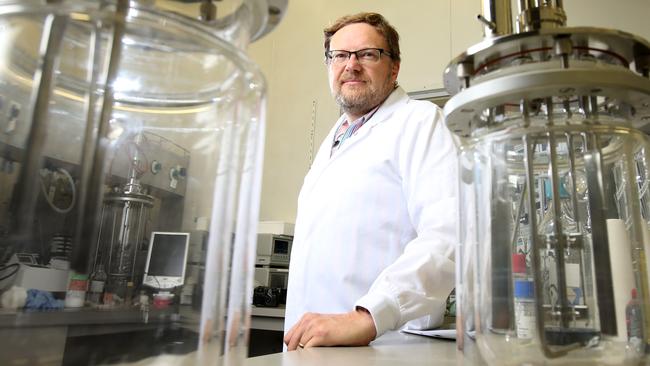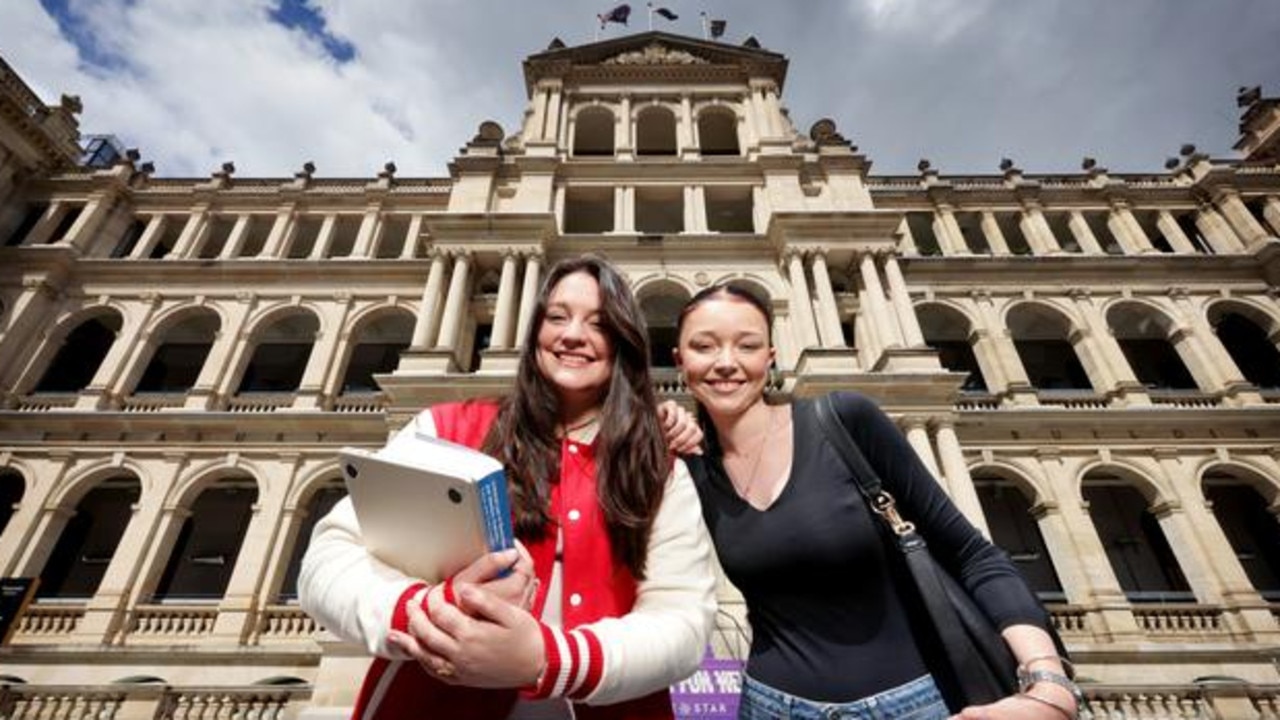From biotech wreck of Progen, Luina Bio eyes expanded drug-manufacturing operations
FROM the wreck of one of Queensland’s biotech disappointments, drug-manufacturing lab says it is rapidly growing in a niche market.

QLD Business
Don't miss out on the headlines from QLD Business. Followed categories will be added to My News.
FROM the wreck of one of Queensland’s biotechnology disappointments, a drug-manufacturing laboratory says it plans rapid growth in a niche market.
Luina Bio is based out of a plant in Brisbane’s western suburb of Darra, where massive air conditioners cool its cargo of experimental drugs made for use in clients’ clinical trials.
Just in October, Luina won a state export award, and says it has gone in 18 months from 12 staff to 34. Three years from now, Luina chief executive officer Les Tillack envisions an organisation with multiple facilities and up to 300 staff.
There are risks along the way – Luina says finding skilled-experts is tough and it can lose money developing plans for clients that ultimately do not raise sufficient cash to proceed with projects.
But Mr Tillack argued Luina had several advantages in the specialised world of contracted drug manufacturing, of which he says there are only a couple of such operators in Australia.
“We are generally a lower cost option,” he said of Australia. The lower dollar plays a part, as does research and development tax rebates for clients setting up operations here.
BLAST FROM BIOTECH PAST
Luina was once part of Brisbane-based Progen, whose hopes of developing a liver cancer treatment sputtered. About 18 months ago, Mr Tillack, other management and investors bought out Progen’s manufacturing operation for $2.2 million.
“We were occasionally profitable (at Progen). We were occasionally loss-making – ‘til towards the end where we became significantly loss making,” Mr Tillack said.
The operation is now “significantly” profitable, he says, declining to specify a number. Revenues had previously been $3 million annually and now should exceed $10 million, he said.
He said one difference was as a separate entity, Luina had more control over budgets to hire good people and could also now market itself.
It’s an example of higher-end Australian manufacturing that Mr Tillack said is not easy to replicate in lower-cost countries.
“The drugs have never been made before, so you’ve got to work out how to make them, you’ve got to work out how to scale it up, you’ve got to work out how to get it into a process that can be made in compliance with good manufacturing practice,” he said.
The drugs are for ailments from cancer to asthma. Luina argues that big multinational drug manufacturers ask cash-strapped biotechnology outfits to do lots of expensive development to shoehorn their planned treatment into the manufacturers’ systems. Luina’s pitch is it understands the client’s tight cash situation, so will change what Luina does to fit with the client’s drug.
Scott Power, a biotechnology analyst with Brisbane-based Morgans, said contract manufacturing was a complex business with hurdles for companies including trying to get enough expertise and obtaining regulatory compliance.
QLD LIFE SCIENCE INDUSTRY
It is part of a larger life-science industry in Queensland, including the development of drugs such as a pain treatment with Spinifex or medical devices with Impedimed. Some funding outfits also have offices here, such as OneVentures, which has a dedicated $170 million healthcare fund.
But an overall picture is hard to evaluate – the Beattie State Government in 2005 mapped out a plan to 2025 for a biotechnology sector in the state with almost $4 billion in revenue by that year. Yet the latest data on State Government websites quotes studies from 2012, with the revenues then at $600 million.
Mr Power said of the sector: “It’s not going too bad (although) there haven’t been a huge number of successes in this state.”
Still, he cited examples including of Spinifex, and Protagonist, a Nasdaq-listed drug company that came out of the University of Queensland’s Institute of Molecular Biosciences.
A lot more would come through from the sector, Mr Power predicted.
Mr Tillack said Luina’s plans included building a second facility to increase the value of the drug development. On one site, the key drug is produced and the second one will take the products, sterilise them and put them into syringes or vials.
They were aiming for the clinical trial market. “We’re going to fill batches up to about 5000 vials. That’s something that’s really hard to find,” Mr Tillack said.
He said such small-scale, high-quality production was very hard to find globally – although large-scale production, say of 100,000 vials, could be readily done elsewhere.


